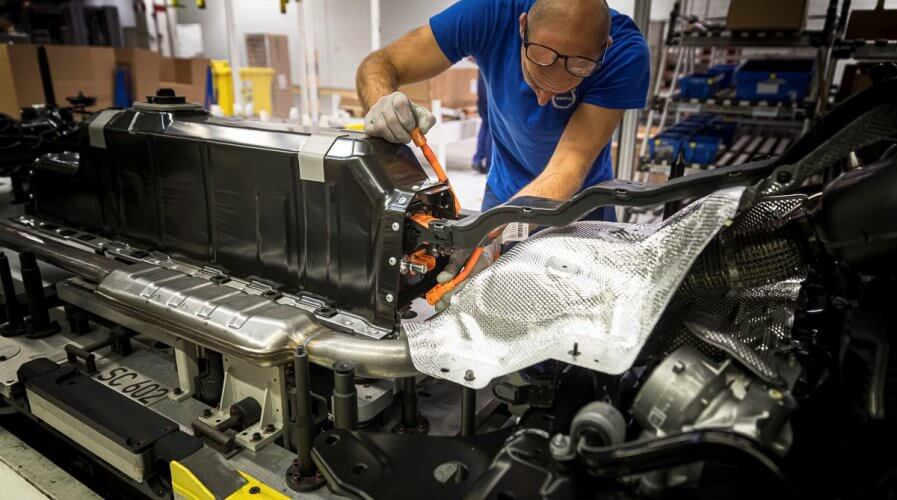
Volvo is taking a series of steps to become more sustainable. Source: Volvo
Volvo’s electric car batteries leverage blockchain to fight unethical cobalt
AS THE WORLD chooses electric vehicles over those powered by fossil fuels, the demand for electric vehicle batteries is set to soar. Companies, especially automakers, must, therefore, make sure that raw materials are sourced ethically — especially cobalt.
Cobalt is found in every lithium-ion battery and electric car batteries use a strong dose of cobalt to power vehicles and boost rechargeability.
In the Congo, reporters recently exposed the inhumane practice of mining cobalt with an army of 35,000 children, in toxic conditions sparking debates between consumers and manufacturers of electronic products focused on finding a way to improve the situation.
Chinese-owned Volvo seems to have found a solution. The automaker has recently announced that it will be using blockchain technology to track and trace the cobalt it obtains and uses in its electric vehicle batteries.
A blockchain is a digital ledger containing a list of records linked to each other via cryptography. Within supply chains, the technology creates records of transactions which cannot be changed, while also enforcing a common set of rules for what data can be recorded. This allows participants to verify and audit transactions independently.
The company said that it has reached an agreement with its two global battery suppliers, CATL of China and LG Chem of South Korea, and leading global blockchain technology firms, to implement traceability of cobalt.
Volvo said the innovative blockchain-powered use case will help it become the world’s first carmaker to implement global traceability of cobalt used in its batteries.
“We have always been committed to an ethical supply chain for our raw materials. With blockchain technology, we can take the next step towards ensuring full traceability of our supply chain and minimizing any related risks, in close collaboration with our suppliers,” said Volvo Cars Head of Procurement Martina Buchhauser.
The agreements between Volvo Cars, CATL and LG Chem cover the supply of batteries over the coming decade for next-generation Volvo and Polestar models, including the XC40 Recharge.
While the move that Volvo has made is commendable, it is not the only company using blockchain technology or looking for innovative ways to trace the raw materials in its batteries.
Recently, Ford built a blockchain platform that would help regulators in Europe (and eventually in other parts of the world) track the number of miles a hybrid vehicle drives on busy roads and in non-congested areas — allowing for the reduction of pollution and the improvement of air quality.
The reality is that blockchain technology has a lot of potential — and automakers that leverage it in creative ways will delight customers as well as regulators, and create new opportunities for growth.
The year 2020 will be an especially exciting time for automakers, given all the potential use cases and the changing market dynamics.
READ MORE
- Ethical AI: The renewed importance of safeguarding data and customer privacy in Generative AI applications
- How Japan balances AI-driven opportunities with cybersecurity needs
- Deploying SASE: Benchmarking your approach
- Insurance everywhere all at once: the digital transformation of the APAC insurance industry
- Google parent Alphabet eyes HubSpot: A potential acquisition shaping the future of CRM


